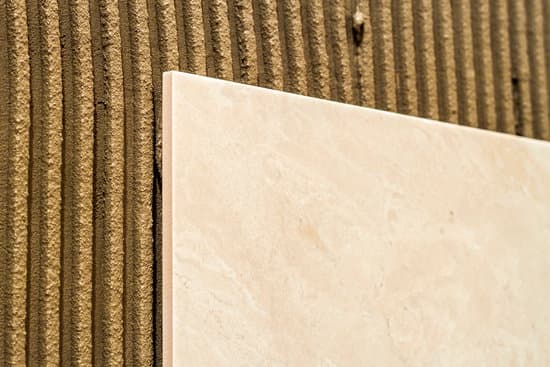Are you wondering, “can you write off home improvement costs on your taxes?” Many homeowners are curious about the potential tax benefits of improving their homes. Understanding how home improvement costs can be used for tax deductions can help you maximize your savings and make informed decisions about your renovation projects.
When it comes to home improvement costs and tax deductions, there are specific guidelines and regulations that determine what expenses may be eligible for deductions. From understanding which home improvement projects qualify for tax deductions to knowing the documentation requirements, navigating the process of claiming deductions for home improvements can be complex.
It’s important to be aware of any limitations and restrictions on home improvement tax deductions as well. While there are potential tax benefits associated with certain types of renovations, not all expenses may qualify for deductions. Being informed about these limitations can prevent any unexpected surprises when it comes time to file your taxes.
Before diving into claiming home improvement costs on your taxes, consider seeking consultation with a tax professional to ensure that you are maximizing your potential benefits while avoiding common mistakes. This proactive approach can help you navigate the process with confidence and peace of mind.
Eligible Home Improvement Projects for Tax Deductions
When it comes to eligible home improvement projects for tax deductions, there are a few key considerations to keep in mind. Generally, in order to qualify for a tax deduction, the home improvement project must add value to your home or prolong its useful life.
This means that basic repairs and maintenance, such as fixing a leaky faucet or painting a room, would not typically qualify for a tax deduction. However, certain improvements that contribute to the energy efficiency of your home or accommodate medical conditions may be eligible for tax deductions.
One common eligible home improvement project for tax deductions is the installation of energy-efficient windows, doors, insulation, or heating and cooling systems. These types of improvements can not only save you money on your energy bills but also qualify for valuable tax credits. Additionally, modifications made to accommodate a disability or medical condition, such as installing ramps or modifying bathrooms and kitchens for wheelchair accessibility, can also be eligible for tax deductions.
It’s important to remember that not all home improvements will automatically qualify for tax deductions. It’s essential to carefully review the IRS guidelines and consult with a tax professional to determine if your specific home improvement project meets the necessary criteria for a tax deduction.
As always, proper documentation of the expenses incurred for the home improvement project is crucial in order to substantiate your deduction claims during an audit by the IRS. So before you start any major renovation with hopes of getting a tax break out of it – it would be wise double check whether “Can You Write Off Home Improvement Costs on Your Taxes“.
Documentation Requirements for Home Improvement Tax Deductions
When it comes to claiming home improvement costs on your taxes, documentation is key. Without proper documentation, you may not be able to take advantage of tax deductions for your home improvement projects. Here are some important factors to consider when it comes to documenting your home improvement expenses for tax purposes.
Keep Detailed Records
It is crucial to keep detailed records of all expenses related to your home improvement projects. This includes receipts, invoices, and any other relevant documents that show the cost of materials, labor, and any other related expenses. Your records should also include the dates of when the work was performed and by whom.
Proof of Ownership
In order to claim a tax deduction for home improvement costs, you may need to provide proof of ownership of the property where the improvements were made. This can include a copy of the deed or other documentation that shows you are the owner of the property.
Contractor Information
If you hired a contractor to perform the home improvement work, it is important to keep records of their information as well. This can include their contact information, license number, and proof that they are properly insured. Having this information on file can help support your claim for tax deductions.
By ensuring that you have all necessary documentation in place, you can increase your chances of successfully claiming tax deductions for your home improvement costs. Always consult with a tax professional if you have any questions or concerns about what documentation is required for home improvement tax deductions.
Limitations and Restrictions on Home Improvement Tax Deductions
When it comes to tax deductions for home improvement costs, there are some limitations and restrictions that taxpayers should be aware of. While certain home improvements may qualify for tax deductions, not all expenses associated with improving your home are eligible for this benefit.
One important limitation to consider is that general repairs and maintenance cannot be deducted from your taxes. This means that if you are simply making updates to keep your home in good condition, such as fixing a leaky faucet or repainting a room, these costs typically do not qualify for a tax deduction.
However, if the improvements increase the value of your home, energy efficiency, or make it more accessible to individuals with disabilities, you can potentially claim these expenses on your taxes.
Another restriction to keep in mind is that any personal use of the improved area of your home may limit your ability to deduct those improvement costs. For example, if you convert a spare room into a home office but also use it as a guest bedroom, you may only be able to deduct a portion of the improvement costs related to the space used exclusively for business purposes.
It’s also important to note that any improvements made using funds from a home equity loan or line of credit can have an impact on the amount you can claim as a tax deduction. Understanding these limitations and restrictions can help ensure that homeowners make informed decisions about which home improvement projects to pursue in order to maximize potential tax benefits.
| Limitation/Restriction | Impact |
|---|---|
| General Repairs and Maintenance | No tax deduction allowed |
| Personal Use of Improved Area | Potentially limits deduction amount |
| Use of Home Equity Funds | Potential impact on deduction eligibility |
How to Claim Home Improvement Costs on Your Taxes
When it comes to claiming home improvement costs on your taxes, it’s important to understand the process and requirements for doing so. Making sure you follow the necessary steps can help you maximize your potential tax benefits while avoiding any potential issues with the IRS.
Keep Track of Expenses
The first step in claiming home improvement costs on your taxes is to keep thorough records of all expenses related to the projects. This includes receipts, invoices, and any other documentation that can prove the costs associated with the improvements. Without proper documentation, you may not be able to successfully claim these expenses on your taxes.
Understand Eligibility
Not all home improvement projects are eligible for tax deductions. Understanding which types of projects qualify can help you determine what expenses
File Properly
When it comes time to file your taxes, it’s important to ensure that you are following the appropriate procedures for claiming home improvement costs. This may involve using specific tax forms or providing additional documentation along with your return. Consulting with a tax professional can help ensure that you are navigating this process correctly and maximizing potential benefits.
Common Mistakes to Avoid When Deducting Home Improvement Costs
When it comes to deducting home improvement costs on your taxes, there are several common mistakes that taxpayers should avoid in order to maximize their potential tax benefits. Here are some key pitfalls to steer clear of:
1. Not Keeping Proper Documentation: One of the most critical mistakes to avoid is failing to keep accurate and detailed records of all home improvement expenses. Without proper documentation, you may not be able to substantiate your deductions in case of an IRS audit. Make sure to retain receipts, invoices, and any other relevant paperwork for your home improvement projects.
2. Claiming Ineligible Expenses: It’s important to understand which home improvement projects are actually eligible for tax deductions. While certain improvements can qualify for tax benefits, not all expenses related to home renovations will necessarily be deductible. For example, purely aesthetic upgrades such as landscaping or interior decorating typically do not qualify.
3. Overestimating the Value of Improvements: Another common mistake is overestimating the value of home improvements when claiming deductions. It’s essential to accurately assess the increase in the value of your property resulting from the renovation in order to claim a realistic deduction.
In addition, seeking professional guidance from a qualified tax advisor can provide valuable insight into maximizing your tax benefits and avoiding costly errors when deducting home improvement costs on your taxes. By staying informed and being vigilant about potential pitfalls, taxpayers can ensure they are making sound decisions when claiming deductions for home improvements.
- Keep detailed records
- Understand eligibility criteria
- Accurately assess property value increase
- Seek professional advice
Potential Tax Benefits of Home Improvement Projects
Home improvement projects can offer potential tax benefits for homeowners. It is important to understand the potential deductions and credits available for home improvement costs when filing your taxes. Here are some potential tax benefits of home improvement projects:
1. Energy Efficiency Credits: Homeowners who make energy-efficient improvements to their homes may be eligible for tax credits. These improvements can include installing solar panels, energy-efficient windows, or upgrading to energy-efficient heating and cooling systems.
2. Medical Necessity Deductions: If a home improvement project is necessary for medical reasons, such as adding a wheelchair ramp or installing a lift for a disabled family member, the costs of these modifications may be deductible as medical expenses.
3. Home Office Deductions: If you use a portion of your home regularly and exclusively for business purposes, you may be eligible to deduct a portion of your home improvement costs as business expenses.
It is important to note that tax laws and regulations regarding home improvement deductions and credits are subject to change, so it is recommended to consult with a tax professional to ensure that you are taking advantage of all potential tax benefits related to your home improvement projects. Additionally, keeping detailed records and documentation of all home improvement costs will be crucial in supporting any tax deductions or credits claimed on your taxes.
Consultation With a Tax Professional for Home Improvement Tax Deductions
In conclusion, when it comes to the question “Can you write off home improvement costs on your taxes?” the answer is yes, but there are important considerations and limitations to keep in mind. Understanding which home improvement projects are eligible for tax deductions is crucial, as not all expenses can be claimed. It’s important to consult with a tax professional to ensure that you are following all regulations and maximizing any potential tax benefits.
Eligible home improvement projects for tax deductions include those that contribute to the value and functionality of your home, such as energy-efficient upgrades or medical necessity modifications. Keeping thorough documentation of expenses and adhering to any limitations and restrictions set by the IRS is essential in order to successfully claim these costs on your taxes.
While there can be potential tax benefits of home improvement projects, it’s important to avoid common mistakes when deducting these costs. This includes understanding the difference between repairs and improvements, as well as avoiding overestimating the deductible amount.
To ensure compliance with tax laws and regulations, consulting with a tax professional who specializes in home improvement deductions can provide valuable guidance and peace of mind. Overall, with proper planning and guidance, homeowners can maximize their tax benefits from eligible home improvement projects while also ensuring compliance with IRS requirements.
Frequently Asked Questions
Can I Deduct Home Improvements on My Tax Return?
Generally, you cannot deduct home improvements on your tax return. However, some energy-efficient home improvements may qualify for tax credits, so it’s essential to research and consult a tax professional for guidance.
Is Homeowners Insurance Tax Deductible?
Homeowners insurance is not typically tax deductible for personal residences. However, if a portion of your home is used for business purposes, you may be able to deduct a portion of the insurance costs related to that specific area.
Are Home Improvement Loans Tax Deductible?
Home improvement loans are usually not tax-deductible unless the loan is being used for home improvement expenses that qualify for a home mortgage interest deduction. In that case, the interest on the loan may be deductible as long as the loan meets certain criteria set by the IRS.

I’m thrilled to have you here as a part of the Remodeling Top community. This is where my journey as an architect and remodeling enthusiast intersects with your passion for transforming houses into dream homes.





